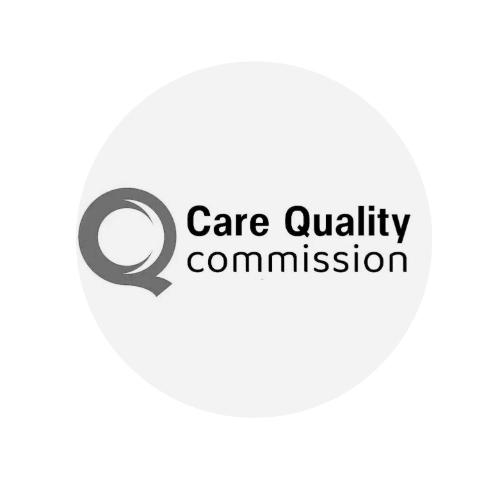Motor Neurone Disease Symptoms: What It Is and What to Look For

Have you noticed your parent or elderly relative becoming unusually forgetful or struggling with everyday tasks?
The Ice Bucket Challenge brought global attention to motor neurone disease (MND), a serious condition that affects the brain and nerves. In the UK, around 5,000 people are living with MND, and it’s a condition that requires understanding and support.
At LuxuryCare, we specialise in providing compassionate dementia care for individuals with neurodegenerative conditions. If you’re concerned about a loved one’s health, we’re here to help you navigate this challenging journey.
But what is MND? In this blog, we discuss the subject in more detail, from recognising motor neurone disease symptoms to caring for someone with MND.
What Is Motor Neurone Disease?
First, what is MND? Motor neurone disease (MND) is a rare condition that affects the brain and spinal cord, leading to muscle weakness and wasting. It’s a type of neurodegenerative disease, meaning it causes the gradual loss of nerve cells.
While MND is not the same as dementia, some symptoms can overlap, leading to confusion between the two.
One of the most common forms of MND is Amyotrophic Lateral Sclerosis (ALS). This condition damages the motor neurones, the nerve cells responsible for controlling muscles. As these cells deteriorate, muscles weaken, affecting movement, speech, and even breathing.
Understanding what MND is can be the first step in seeking the right support and care for your loved one.


Early Symptoms of MND
Recognising the early signs of MND can be challenging, as they often appear gradually. However, early detection is crucial for managing the condition effectively. Here are some early motor neurone disease symptoms to watch for:
- Forgetfulness, especially short-term memory lapses
- Misplacing everyday items
- Muscle weakness, clumsiness, tripping, or dropping things
- Slurred speech or changes in voice
- Slight difficulty in swallowing or breathing
If your loved one is exhibiting these early signs of MND, it’s important to consult a healthcare professional for a proper diagnosis.
Middle-Stage Symptoms of MND
As MND progresses, symptoms become more pronounced, affecting daily life significantly. During the middle stages, you may notice:
- Gradual worsening of mobility, making walking or standing challenging
- Speech becoming more difficult to understand
- Emotional lability, such as involuntary laughing or crying
- Weight loss and muscle wasting
- A possible need for walking aids or adapted support
- The importance of a structured routine and care support
These middle-stage signs of motor neurone disease indicate the need for increased care and support to maintain quality of life.
Late-Stage Symptoms of MND
In the advanced stages of MND, individuals require comprehensive care to manage the severe symptoms. Late-stage motor neurone disease symptoms include:
- Severe mobility issues, potentially leading to full-time wheelchair use or becoming bed-bound
- Inability to speak, necessitating communication aids
- Tube feeding or specialist nutritional support
- Breathing support, such as a ventilator or oxygen therapy
- Full assistance with personal care and daily activities
- Emotional toll on family members, highlighting the importance of respite and professional care
During this stage, specialist dementia care becomes essential to ensure the individual’s comfort and dignity.
How LuxuryCare Supports Those with Motor Neurone Disease
At LuxuryCare, we understand that caring for someone with MND can be overwhelming, emotionally draining, and often confusing. That’s why our approach is built around compassion, consistency, and clinical expertise.
We create bespoke care plans that evolve with the changing needs of each individual – offering the right level of support at every stage of the condition. Our fully trained team delivers both professional nursing and attentive personal care, ensuring dignity and comfort at all times.
Beyond medical support, we focus on enriching daily life. Even in the more advanced stages of MND, we provide engaging activities tailored to the resident’s abilities and interests, helping to maintain cognitive function and emotional well-being.
Our chefs prepare nutritious meals that suit specific dietary needs, while our warm, welcoming rooms offer a calm and secure place to feel truly at home.
We also know how important it is for families to stay informed and feel included. That’s why we maintain close communication, providing regular updates and emotional support whenever needed.
When looking for a trusted care home for neurodegenerative diseases, our homes deliver specialist dementia care with understanding, skill, and heart – because your loved one deserves nothing less.
Ready to Talk? We're Here to Help
No matter the stage of your loved one’s condition, we’re here to help them live with dignity, comfort, and compassionate care. Let’s talk about the support you need.
With over 20 years of experience and six modern, fully equipped care homes, LuxuryCare offers the best choice for caring for a loved one living with MND.
What is MND? Now you understand the disease better, let’s discuss what comes next.
Call us today on 01202 037373 or reach out via our contact form to discuss how we can support you and your loved one.















